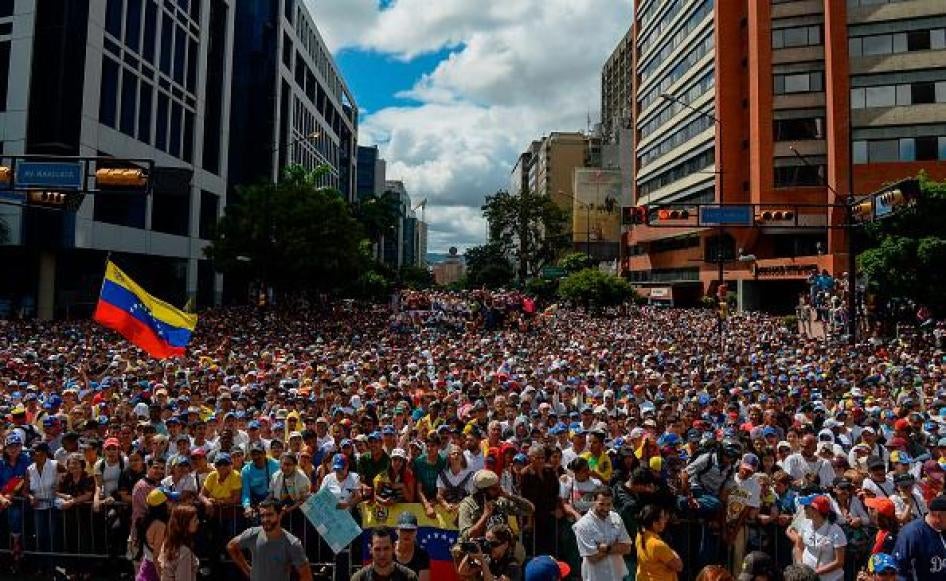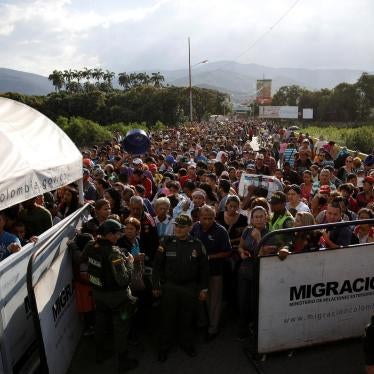(New York) – Venezuelan officials should be held accountable if security forces resort to the same repressive tactics they have used in previous crackdowns against anti-government protests, Human Rights Watch said today.
On January 23, 2019, Venezuelan security forces used force to disperse massive anti-government demonstrations. Other anti-government protests have also taken place, including in low-income areas where the government has traditionally enjoyed strong support. Venezuelan media outlets and civil society groups reported 26 people killed, use of teargas by security agents against demonstrators, and 364 people detained. Security forces have also allegedly attacked and detained several journalists covering the protests.
“There is every reason to worry that the government’s response to these protests will follow the same pattern we have been documenting in Venezuela since 2014,” said José Miguel Vivanco, Americas director at Human Rights Watch. “But now the international community is watching more closely than ever before, so security forces – and those commanding them – should know they will be held to account for any abuses.”
Hundreds of thousands of Venezuelans took to the streets on January 23 following an appeal by Juan Guaidó, the National Assembly president who earlier this month asked the Venezuelan people to mobilize in support of restoring constitutional order in the country. During the protest, Guaidó claimed that he was taking power as interim president of Venezuela and said that he would call for free and fair elections.
Several governments in the Americas and Europe have since recognized Guaidó as interim president of Venezuela. Venezuelan government officials have accused the opposition of attempting to carry out a coup.
In reports published in 2014 and 2017, Human Rights Watch found widespread abuses by members of Venezuela’s security forces. In both reports, Human Rights Watch concluded that the evidence supported the conclusion that the abuses were part of a systematic practice by the Venezuelan security forces. Between the 2014 and 2017 crackdowns, Human Rights Watch documented other cases of politically motivated prosecutions in which detainees were also abused in detention, including torture.
More than 13,100 people have been arrested since 2014 in connection with anti-government protests, according to Foro Penal, a Venezuelan group that provides pro bono legal counsel to detainees in recent years. These include demonstrators, bystanders, and people taken from their homes without warrants. More than 7,500 have been conditionally released but remain subject to criminal prosecution. Since 2017, military courts have prosecuted more than 800 civilians, in violation of international human rights law.
Impunity for this whole range of government abuses is the norm.
The Office of the Prosecutor at the International Criminal Court (ICC) has opened a preliminary examination in February 2018 to evaluate whether crimes against humanity have been committed in Venezuela.








